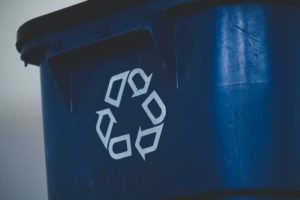APPLICATIONS OF TECHNOLOGY:
- Specialty polymer resin production for single-use plastics, multi-layer film, textiles, and coatings, automotive, and consumer electronics
BENEFITS:
- Infinitely recyclable at low cost and low carbon footprint due to chemical process
BACKGROUND:
- Traditional plastics are unsustainable and harmful to the environment, and mechanical recycling may allow short reuse but eventually makes polymers unusable. A method to produce polymers with traditional plastic characteristics that can be recycled indefinitely is necessary for sustainable development.
TECHNOLOGY OVERVIEW:
Berkeley Lab, including JBEI, researchers discovered a method of recycling polydiketoenamine (PDK) polymers chemically using heteroatom placement.
Berkeley Lab researchers discovered that polydiketoenamine polymers bearing heteroatoms at specific locations undergo depolymerization at rates that are orders of magnitude higher than if those heteroatoms were placed elsewhere/absent. This invention allows chemical recycling of PDK resins with linear chain architectures and significantly widens the scope of polymer compositions.
Heteroatom placement can be controlled through chemical synthesis or biosynthesis. Researchers identified embodiments where biosynthesized chemicals used in monomer and polymer synthesis offer performance advantages that would be difficult to replicate using chemically synthesized analogues. Embodiments along those lines have the potential to be high performance, highly recyclable, and bio-renewable when compared to traditional plastics. Virgin resin production is carbon intensive (86 kg CO2e kg−1), while chemical recycling emits only 2 kg CO2e kg−1. This cost and emissions disparity provides a strong incentive to recover and recycle future polymer waste.
The development of PDK resins that are amenable to chemical recycling due to heteroatom functionalization of the monomers at specific sites provides a solution in circular manufacturing systems and beyond. Future work could focus on the understanding of physical properties of the polymers in specific form factors (e.g., fiber, molded parts, film, etc.), development of a manufacturing process for polymer resins, and compounding and conversion into specific products.
DEVELOPMENT STAGE: Proven principle
FOR MORE INFORMATION:
PRINCIPAL INVESTIGATORS:
- Jay D. Keasling
- Brett A. Helms
- Kristin Ceder-Persson
- Robert Haushalter
- Alex Epstein
- Jeremy Demarteau
STATUS: Patent pending.
OPPORTUNITIES: Available for licensing or collaborative research.
SEE THESE OTHER BERKELEY LAB TECHNOLOGIES IN THIS FIELD:
Microbial Production of Monomers for Recycling of Plastic Polymers 2022-001
